There is a scripture from the Bible that says: “In the midst of the street of it, and on either side of the river, there was the Tree of Life, which bore twelve kinds of fruit and yielded her fruit every month; and the leaves of the tree were for the healing of the nations.”
This scripture is a witness to the healing power of the herbs around us, including Ghanaian traditional medicine.
From the neem leaves, which make exceptional tea, to the Aloe Vera that detoxifies you, plants are good for your health. This is not what we have been taught, as modern medicine is filled with chemicals and substances that harm us. Yet, as a people being destroyed from a lack of knowledge, we follow the trends of the modern world.
Ghanaian herbs have been an integral part of the country’s healthcare system for hundreds of years. Before there was modern medicine, our ancestors had to depend on the land to heal them. This practice was not only healthier for the people, but they were also free. Ghanaian lands are full of free medicinal herbs that address our simplest to most complex health issues.
The practice of using Ghanaian traditional medicine for health issues has passed down through generations and continues to play a significant role in the daily lives of many Ghanaians. Today, traditional medicine in Ghana remains a trusted form of healthcare, particularly in rural areas where access to modern hospitals can be limited.
In this blog, we’ll highlight some of the most commonly used medicinal herbs in Ghana and provide information on herbal hospitals where these remedies are professionally administered.
The Roots of Ghanaian Traditional Medicine
In Ghana, as with most African nations, traditional medicine is deeply rooted in indigenous knowledge passed down through generations. Healers and herbalists play a central role in Ghanaian communities, offering treatments derived from plant-based remedies. The belief underlying Ghanaian herbal healing is that illness often stems from imbalances in the body. Thus, treatments aim to restore equilibrium, offering a comprehensive approach to health that blends physical and mental well-being.
The effectiveness of Ghanaian traditional medicine lies in the careful selection and preparation of herbs. Knowledge about which plants to use, how to prepare them, and the correct dosages has been refined over centuries through trial and observation. As a result, many Ghanaians continue to trust traditional medicine, often using it alongside conventional healthcare.
You will often see herbalist on Ghanaian streets advertising their practice, catering to the health of local people.
The Stigma Towards Ghanaina Traditional Medicine
There is a stigma against Ghanaian traditional medicine because of the spiritual aspects that come with a lot of the practice. However, for this blog, we’ll only look at the herbal aspects, where plants are used for healing.
The reality is that not all traditional remedies are spiritual—many treatments, such as the use of neem, prekese, and moringa, are purely herbal and focus on physical healing.
A lot of the stigma against Ghanaian traditional medicine come from the influence of colonizers, that has lead to misinformation and modern medical bias. During colonial times, Western medicine was promoted as superior, while African healing practices were dismissed as primitive. This legacy continues today, causing many people to look at traditional medicine as outdated.
The lack of scientific validation for many herbal remedies also raises doubts about their safety and effectiveness, while inconsistent regulation fuels fears of contamination or misdiagnosis by unqualified practitioners.
See Also: Healing the African Diaspora: How Ghana Sets Your Life Free
Commonly Used Herbs in Ghanaian Traditional Medicine
Ghana’s abundant plant life provides a wealth of natural resources for healing. Many plants native to Ghana have powerful medicinal properties and are used to treat a wide range of health conditions. Here are some commonly used herbs in Ghanaian traditional medicine:
Neem Tree (Azadirachta indica)

Uses: Treats malaria, skin infections, and fevers. Boiling neem leaves to make a tea is a common remedy for detoxifying the body and reducing inflammation.
Application: The leaves are boiled for tea or used in baths for skin treatments.
Prekese (Tetrapleura tetraptera)
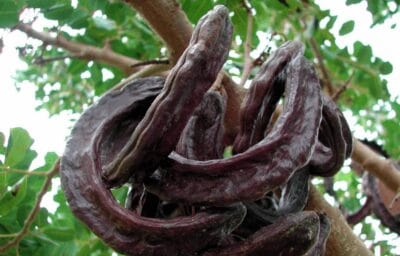
Uses: Helps manage hypertension, inflammation, and diabetes. It is also believed to promote postpartum healing.
Application: Prekese pods are often added to soups or boiled to extract their medicinal properties.
Aloe Vera
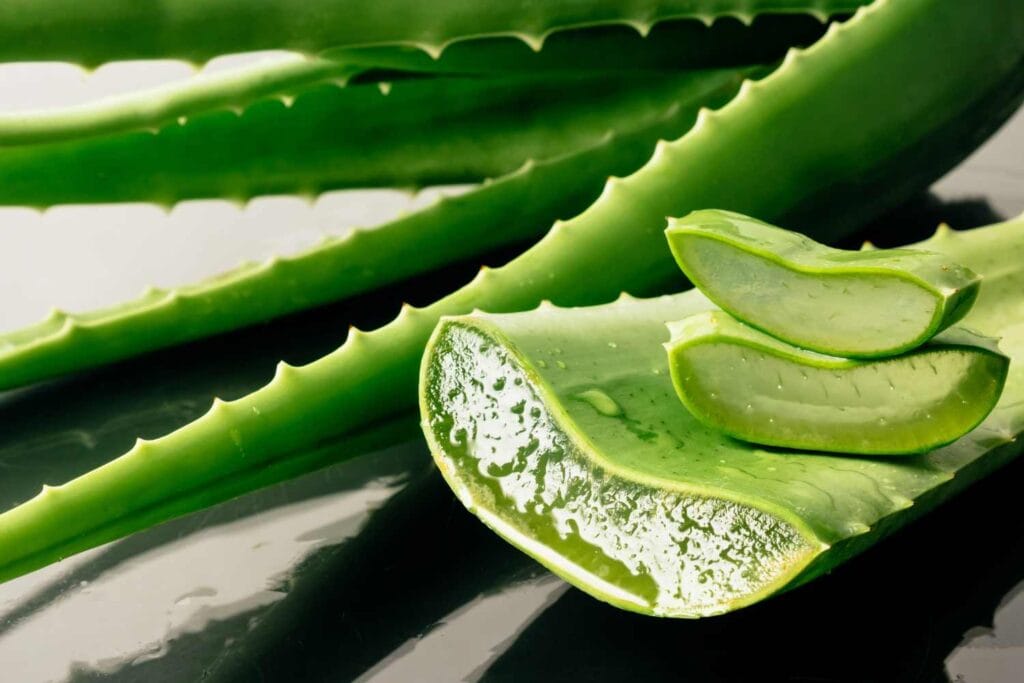
Uses: Known for treating burns, skin conditions, and digestive issues. Aloe Vera is also used as a general detoxifying agent.
Application: The gel is applied topically for skin conditions or consumed as juice for internal healing.
Bitter Leaves (Vernonia amygdalina)
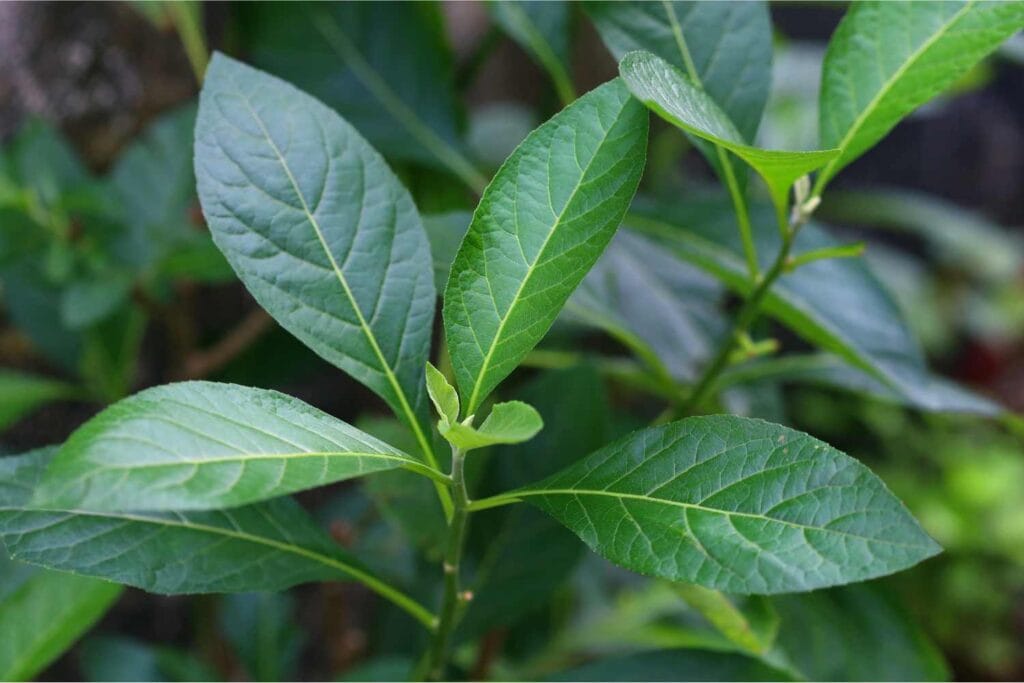
Uses: Used to manage diabetes, improve digestion, and lower cholesterol levels.
Application: The leaves are either chewed fresh, boiled for tea, or used as a tonic.
Moringa (Moringa oleifera)
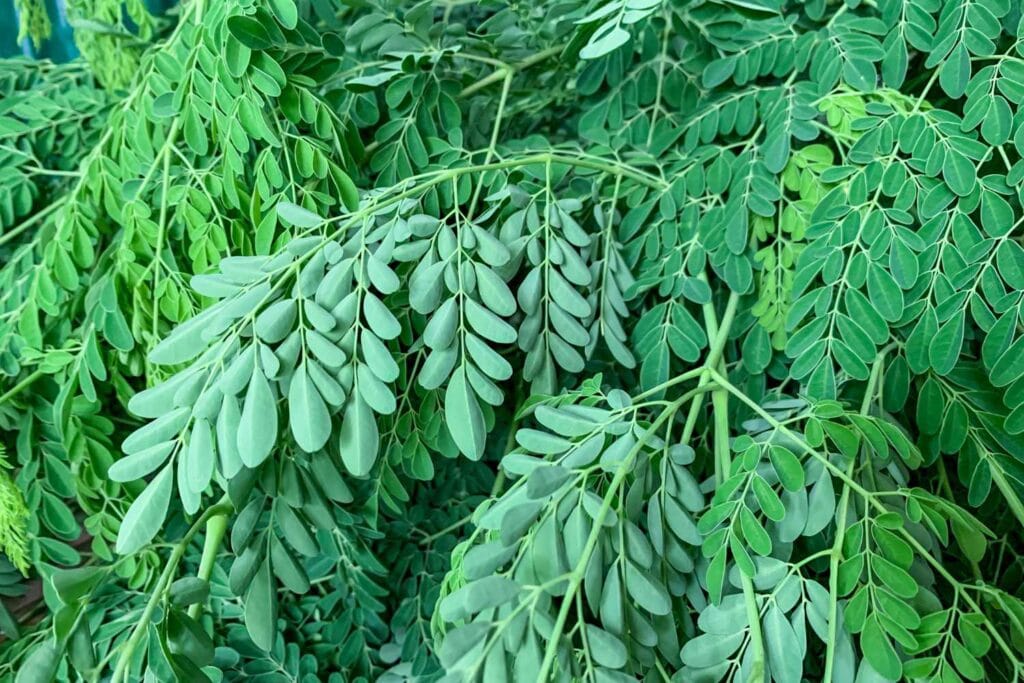
Uses: Provides a rich source of vitamins and minerals, supports immune function, and reduces inflammation.
Application: The leaves are dried and ground into powder for teas, or consumed fresh in soups.
Turkey Berry (Solanum torvum)
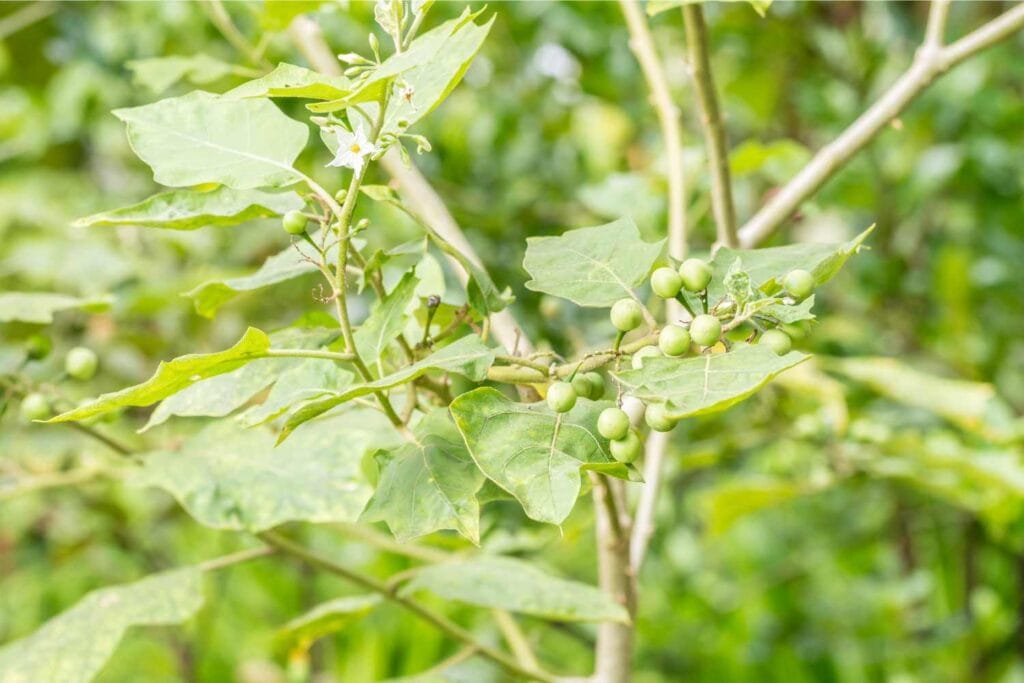
Uses: Known for increasing iron levels and treating anemia. It also helps improve heart health.
Application: Consumed as part of stews or boiled and taken as a health tonic.
Nunum (Scent Leaf)
Herbal Hospitals in Ghana
As Ghana continues to embrace the benefits of traditional medicine, several herbal hospitals have been established to provide safe and regulated care. These hospitals blend Ghanaian traditional medicine with modern medical practices, ensuring patients receive comprehensive care. Below are some of the most recognized herbal hospitals in Ghana:
Medimafo Herbal Hospital
Location: Abuakwa Agogo (Opposite Government School) and Accra Pokuase-Mayera Road (behind Psalm 23 Shopping Center)
Contact: +233 24 477 4282
Website: medimafoherbalhospital.com
Lucky Herbal Hospital
Location: Gomoa Oguaakrom, Winneba-Agona Swedru Highway
Contact: +233 24 320 1244 / +233 27 746 5855
Website: luckyherbalhospital.com
Eastern Regional Hospital Herbal Department
Location: Koforidua, behind ECG, Eastern Region, Ghana
Contact: +233 34 202 3021 / +233 34 202 3031
Website: erhk.org
These hospitals aim to preserve and advance the rich heritage of Ghanaian traditional medicine while providing patients with safe and effective treatment options.
The Future of Ghanaian Traditional Medicine
The future of Ghanaian traditional medicine looks promising as more research and collaboration emerge between traditional and modern medical practitioners. The Ghanaian government, through institutions like the Traditional Medicine Practice Council (TMPC), continues to regulate and promote the safe use of herbal remedies. Ongoing efforts to document and scientifically validate these ancient practices will further integrate them into the formal healthcare system.
With growing global interest in natural medicine and holistic health, Ghanaian traditional medicine is well-positioned to offer sustainable and culturally significant healthcare solutions for future generations.
Final Thoughts
Ghanaian traditional medicine remains an essential part of the country’s cultural and medical landscape. The use of herbal remedies such as neem, prekese, and moringa continues to provide effective treatment for various health conditions. With the establishment of herbal hospitals, patients can now access professional care that blends ancient wisdom with modern science.
For those curious about alternative medicine or looking to reconnect with their African heritage, Ghanaian traditional medicine offers a rich and effective path to healing. As interest continues to grow, these time-tested remedies will remain a vital part of Ghana’s healthcare future.











